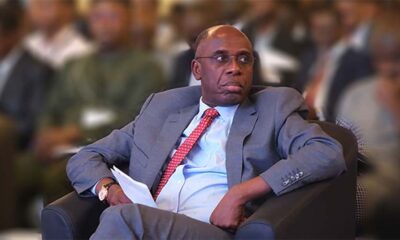Business
World Bank warns Nigeria about rising fuel subsidy
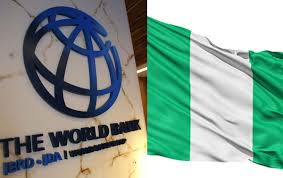
…says it could pose debts sustainability problem
Nigeria’s increasing fuel subsidy could pose debt sustainability issue for the country, the World Bank has said.
The bank made the observation in its latest ‘Africa’s Pulse’ report, a biannual analysis of the near-term regional macroeconomic outlook.
The National Assembly on Thursday approved the request of President Muhammadu Buhari of N4 trillion for petrol subsidy.
But the World Bank noted the rising cost of subsidies could also weaken the country’s public finance.
“Risk remains high on increasing fuel subsidies, which could weigh heavily on public finance and pose debt sustainability concerns,” the report said.
“Nevertheless, public debt as a percentage of GDP is currently moderate.”
The Washington-based institution added that the country’s soaring military spending and debt servicing costs could prey on the country’s debt sustainability level.
“Persistent fuel subsidies, increasing military spending for security purposes, and rising debt servicing costs weigh heavily on public finance to keep public debt at a sustainable level in Nigeria,” the report added.
“The fiscal balance deteriorated considerably in several Sub-Saharan African countries as governments scaled-up spending to mitigate the prolonged effects of the pandemic on firms and vulnerable households.”
On sub-Saharan Africa’s recovery, the bank noted that it is multi-speed, with wide variation across countries.
“The recovery of the three largest economies in the region — Nigeria, South Africa, and Angola — will continue to be sluggish,” it said.
“High oil prices will support growth in Nigeria and Angola.
“Excluding Angola, Nigeria, and South Africa, growth is projected at 4.1 per cent in 2022—higher than the growth of the region as a whole.
“Non-resource-rich countries are projected to be adversely affected by rising commodity prices, dragging down growth in the region.
“The opposite occurs with resource-rich countries whose growth would be propelled by favourable terms of trade.”
The bank further said the war in Ukraine would further improve the economic performance of resource-rich countries (especially their extractive sector) and decelerate the economic activity of non-resource-rich countries as their import bills soar.
“Given limited trade exposure, the impacts of the Russia-Ukraine conflict are expected to be negligible,” the bank added.
It projected a 2.7 per cent growth for Nigeria in 2022.
“Of the region’s three largest economies, South Africa’s growth is expected to decline by 2.8 percentage points in 2022, dragged by persistent structural constraints, while Angola and Nigeria are projected to continue with the momentum of 2021, up by 2.7 and 0.2 percentage points, respectively, thanks partly to elevated oil prices and good performance of the non-oil sector,” the bank said.
According to World Bank, growth in Nigeria is forecast to increase to 3.8 per cent in 2022 and stabilise at 4 per cent from 2023 to 2024.
It stated, “Real GDP growth was revised up by 1.2 percentage points for both periods compared with the previous forecast. Nigeria’s economy is still dependent on the oil sector.
“Oil-related revenue contributes 40 to 60 per cent of fiscal revenue, while oil and gas account for 80 to 90 per cent of total exports. Weak oil production, below the OPEC quota, held back the recovery process.
“Although at a slower pace than the average 7 per cent during the boom period, growth prospects for the Nigerian economy are somewhat bright thanks to high oil prices coupled with reforms initiated by the passing of the Petroleum Industry Act and the completion of the Dangote refinery expected in 2023.”
Business
SEC announces stricter measures to protect investors
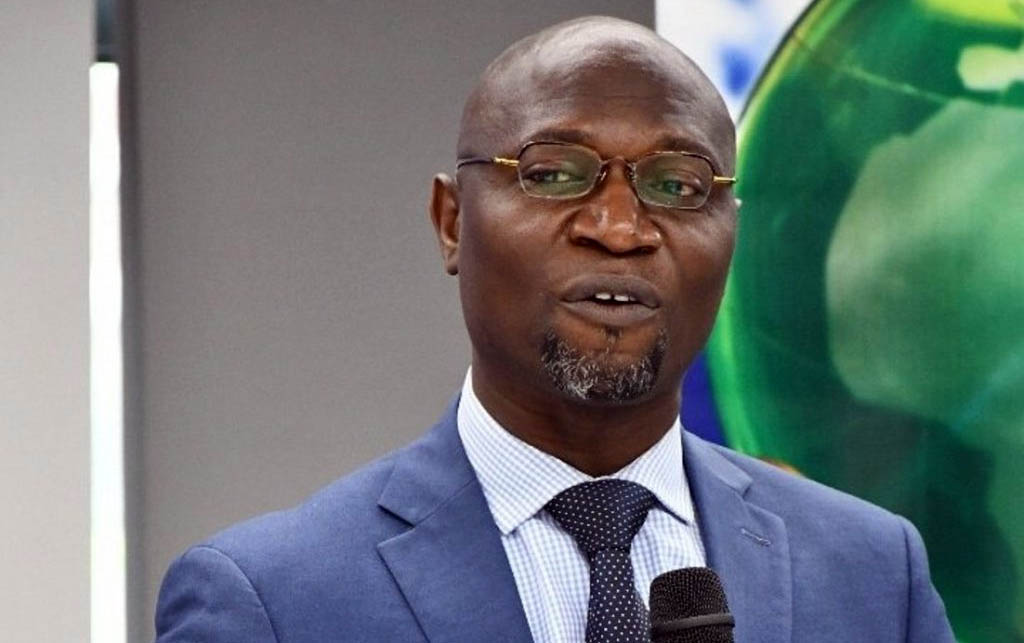
SEC announces stricter measures to protect investors
The Securities and Exchange Commission (SEC) has reaffirmed its commitment to protecting investors in Nigeria’s capital market by cracking down on fraudulent activities.
According to the Director-General of SEC, Dr. Emomotimi Agama, operators engaging in unscrupulous practices will face strict penalties as the Commission prioritizes safeguarding investor interests.
“So, clearly for us, it is getting people to understand that there is no hiding place anymore for anybody that has the intention to defraud Nigerians and to defraud anybody that is investing in this market,” Dr. Agama stated, emphasizing the Commission’s zero-tolerance policy.
READ ALSO:
- Why postgraduate students are ineligible for FG loan – NELFUND
- Bitcoin rises above $86,000 as crypto market gains momentum
- 2 Nigerians in US face heavy jail term over fraud
Dr. Agama highlighted that the Investments and Securities Act (ISA) 2007 serves as the framework for securities regulation in Nigeria, ensuring that market operators adhere to high ethical standards.
He emphasized the importance of the “fit and proper person’s test,” which requires operators to meet specific regulatory criteria to maintain their licenses.
“This is because the very ethics of regulating or registering a securities market operator is in the principle of the fit and proper person’s test,” he explained.
“What you have been seeing most recently by the revocation of licenses, the suspension of operators and our follow-up to operators that are not registered with the SEC is only a tip of the iceberg as to what we intend to do this year.”
Dr. Agama assured stakeholders that the SEC will leverage its regulatory powers under Nigerian law to deter fraudulent activities, noting, “We believe strongly that a protected investor is a powerful investor.”
SEC announces stricter measures to protect investors
Business
Bitcoin rises above $86,000 as crypto market gains momentum

Bitcoin rises above $86,000 as crypto market gains momentum
Bitcoin and other leading cryptocurrencies extended their gains on Monday, buoyed by positive investor sentiment despite concerns over upcoming U.S. tariffs and key economic data releases later this week.
As of 7am WAT, Bitcoin rose 3.2% to $86,590, while Ethereum gained 2.3%, trading at $2,047.
The global cryptocurrency market capitalization increased by 2.94% in the past 24 hours, reaching $2.84 trillion.
Other notable performers included XRP, Cardano, and Dogecoin, which posted gains of 3%, 2%, and 3.8%, respectively. Chainlink, Avalanche, Hedera, and Stellar recorded growth ranging from 3% to 10%.
“Bitcoin is holding above $86,000, registering a 3% gain today. The key resistance level to watch is $86,700; a breakout could pave the way for $90,000,” said Vikram Subburaj, CEO of Giottus.
Bitcoin’s market capitalization surged to $1.727 trillion, with dominance rising to 60.73%. Its 24-hour trading volume soared by 93% to $18.2 billion, while stablecoin transactions accounted for 94.74% of total crypto trading, reaching $57.58 billion, according to CoinMarketCap.
READ ALSO:
- 2 Nigerians in US face heavy jail term over fraud
- Canada denies 13,000 Nigerians refugee status
- Lagos Govt to redesign Oshodi motor park for rail integration
Solana Outperforms Peers Amid Positive Market Sentiment
Solana (SOL) emerged as a standout performer, surging over 7% in the past 24 hours to trade above $139.
The rally was fueled by reports suggesting that President Trump’s April 2 tariffs may be more targeted than initially feared, easing market concerns.
Weekend rumors indicated that the tariffs might include country exemptions and non-cumulative charges on metals, contributing to improved sentiment across global markets.
The Federal Reserve’s projections for two rate cuts this year further supported risk assets, with the central bank describing potential tariff-induced inflation as “transitory.”
BitMEX co-founder Arthur Hayes expressed optimism about Bitcoin’s trajectory, stating, “The Fed’s policy orientation could help Bitcoin achieve $110k before it retests $76.5k.”
Solana’s momentum aligns with unprecedented acceptance rates. DeFiLlama reported that Solana’s total value locked (TVL) reached 54.87 million SOL, its highest level since June 2022. Ali Charts revealed that a record 11.09 million addresses now hold SOL, underscoring growing adoption.
Bitcoin rises above $86,000 as crypto market gains momentum
Railway
Lagos Govt to redesign Oshodi motor park for rail integration

Lagos Govt to redesign Oshodi motor park for rail integration
The Lagos State Government has announced plans to redesign the Oshodi Transport Interchange (OTI) to integrate the facility with the Red Line and Blue Line rail systems, advancing its Rail Mass Transit project.
This initiative aims to deliver seamless connectivity between the two key rail networks and enhance commuters’ experience in Lagos.
The disclosure was conveyed via a statement shared on the official X (formerly Twitter) account of the Lagos State Ministry of Transportation on Saturday, highlighting the need to optimize the design and operations of the OTI to boost efficiency and align with global standards.
READ ALSO:
- Nurse punished in UK for addressing convicted transgender paedophile as ‘Mr’
- Ex-LG chair challenges El-Rufai’s claims on council funds
- Some ladies in movie industry ready to sleep their way to fame — Jide Kosoko
To kickstart the process, the Honourable Commissioner for Transportation, Seun Osiyemi, held a meeting with stakeholders to assess the current state of the interchange and outline strategies for its improvement.
“The Ministry of Transportation sought to address the ongoing developments and challenges affecting the Oshodi Transport Interchange (OTI) in preparedness for the integration of the Rail Mass transit system; Red Line rail project connecting the Blue Line.
“The Ministry recognized that a review of the OTI’s design and operations is essential for its optimization which led to the Honourable Commissioner for Transportation, Oluwaseun Osiyemi meeting with relevant Stakeholders to discuss the current state of the OTI and identify viable solutions that would enhance its operational efficiency in alignment with global standards and Standard Operating Procedures,” the statement read in part.
Lagos Govt to redesign Oshodi motor park for rail integration
-

 metro3 days ago
metro3 days agoNatasha: Court blocks recall attempt, stops INEC
-
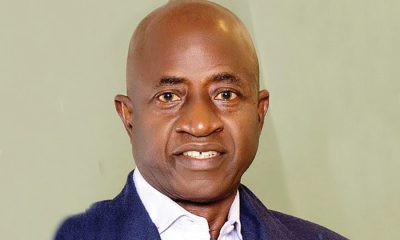
 Sports3 days ago
Sports3 days agoOdegbami speaks on Osimhen breaking his 44-year goals record
-

 Entertainment3 days ago
Entertainment3 days agoI didn’t snatch Asake’s mother from her husband -Musibau Alani
-

 Entertainment1 day ago
Entertainment1 day agoSome ladies in movie industry ready to sleep their way to fame — Jide Kosoko
-

 metro3 days ago
metro3 days agoOluwo accuses Ooni of plotting to dethrone him
-

 metro3 days ago
metro3 days agoBoko Haram attacks military base in Adamawa
-
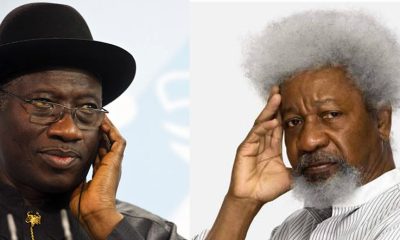
 metro1 day ago
metro1 day agoPresidency blasts Jonathan, Soyinka over comments on emergency rule in Rivers
-

 metro13 hours ago
metro13 hours agoCourt refers Ojukwu property case to alternative dispute resolution









